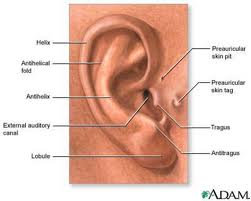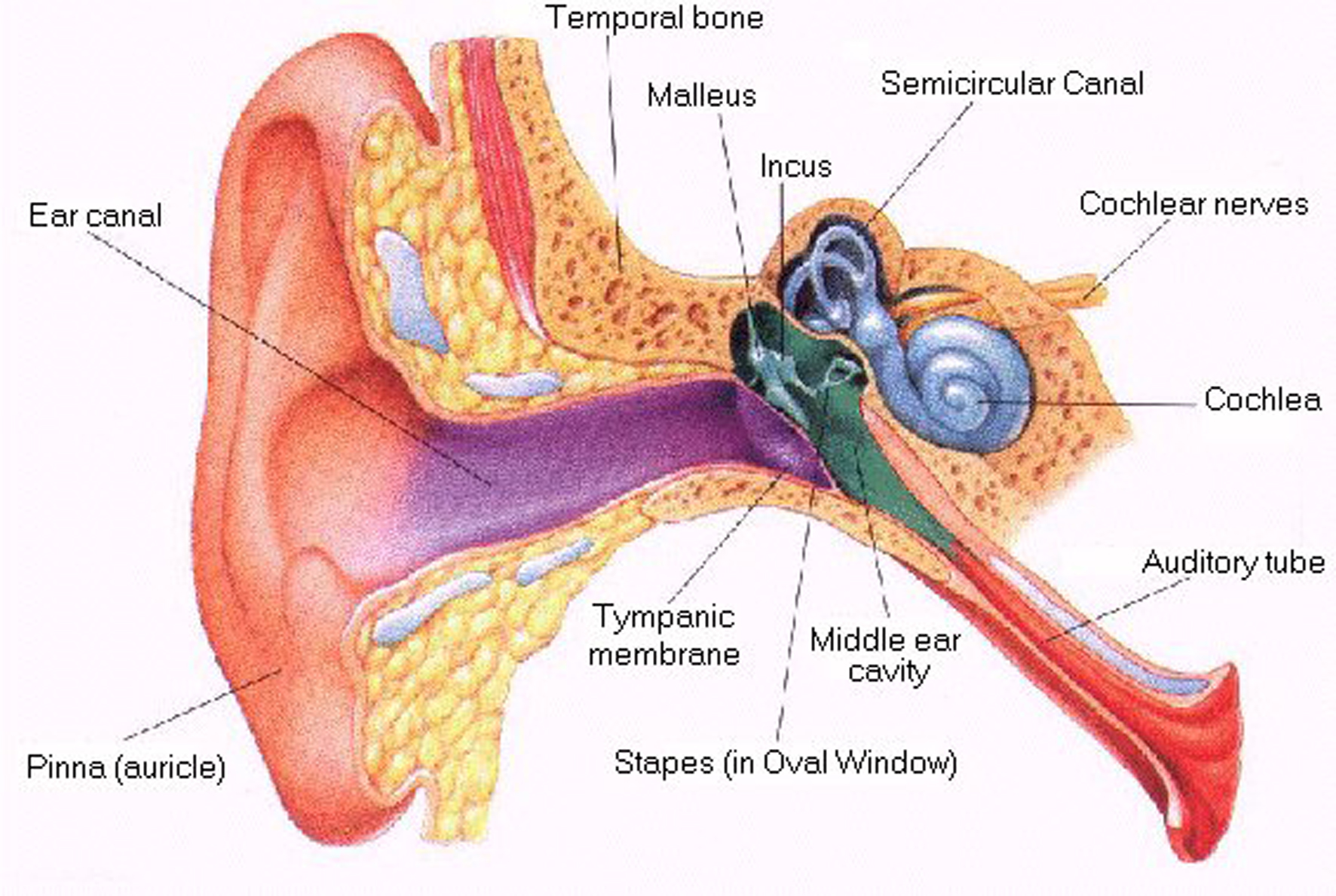
THE SENSE OF HEARING.
IT is said that nature speaks to us so much by her gentle or awful sounds that the life of a deaf
person is even harder to bear than that of a blind one. Did you ever stop to notice how many different sounds you can hear at once? In the busy city there are people talking and walking, horses tramping, carriages rattling, bells ringing, and cars whistling; while in the quiet country the wind sighs and rustles through the tree tops, brooks are babbling, birds are singing, insects humming; the rain falls, the waves dash, the tempest howls, the thunder rolls—nature's voices all unite, yet do not confuse us.
But how do we hear these sounds? When you throw a stone into the water, perhaps you have noticed that it makes little waves all around it, which, gradually growing larger, chase one another to the shore. When you clap your hands or shout, you cause a globe of sound waves to start from you into the air. These waves of sound, like those in the water, grow larger and larger till they strike the ear. Deep bass voices will make waves from eight to twelve feet long, while a woman's voice, which is higher, makes shorter waves, from two to four feet long. The number of waves, which enter the ear in a second, varies from sixteen to forty-eight thousand.
The wise Being who made the air capable of carrying sound, made the most wonderful little machine in the whole body to catch those waves so that we might hear. The outside ear is connected with a tube over an inch long. This tube is lined with fine hairs and a very bitter wax to keep out dust, insects, and every other intruder.
As well might you thrust a pin or a nail among the fine wheels of a watch, as into the ear. Over the inner end of this tube is stretched a membrane called the tympanum, like the parchment over the head of a drum. So delicate is this membrane that a blow on the ear has broken it; and one case, at least, is on record, in which a child died from the effect of such a blow.
Inside of this tympanum, or drum, and fastened to it by its handle, is a tiny hammer. The other end of the hammer is fitted into a hole in another little bone called the anvil. This bone is firmly fastened to another called the stirrup, which rests on a curious little body that looks like a snail shell, called the cochlea, and also the cortis. This organ has over three thousand of the finest threads stretched across it, which act like the strings of a harp or piano. You perhaps have noticed that when you sing a note very loudly by the side of a piano, the same string in the instrument will answer you; so in this strange little musical instrument in the ear, each string will vibrate to the very sound that reaches it. Its Maker fitted up a safe little chamber for it in the hardest part of a larger bone.
This chamber is filled with a fluid. It has winding canals and stiff but very fine hairs, which move easily as the waters quiver around them. They are supposed to be the ends of the nerve, or telegraphic cord sent out from the brain to catch sounds.
Now when sound-waves are put in motion, or a noise is started, as you would say, the outside ear, which you see curves inward, collects, these waves, and sends them through the tube against the tympanum, causing it to move to and fro; this moves the little hammer, making it strike the anvil, which, in turn moves the stirrup, causing the waters to quiver and the hairs to wave, thus sending the dispatch to the brain. Not until all this is accomplished do we know there has been a noise.
So you see how instantaneously and accurately every part of this delicate little machine must act.
Should any part of it become injured in any way, the sense of hearing is impaired or destroyed, and the person is said to be deaf. Who but an all-wise and loving Father, who notes alike the revolutions of a world or the sparrow's fall, could create this wonderful mechanism through which we may receive so much of either pleasure or pain?
M. E. STEWARD.

WHEN the thief cannot break in at the door himself, he finds a child and puts him through the little window, and then the big door is speedily opened. Thus do little sins open the door for a great sin.
Spurgeon.